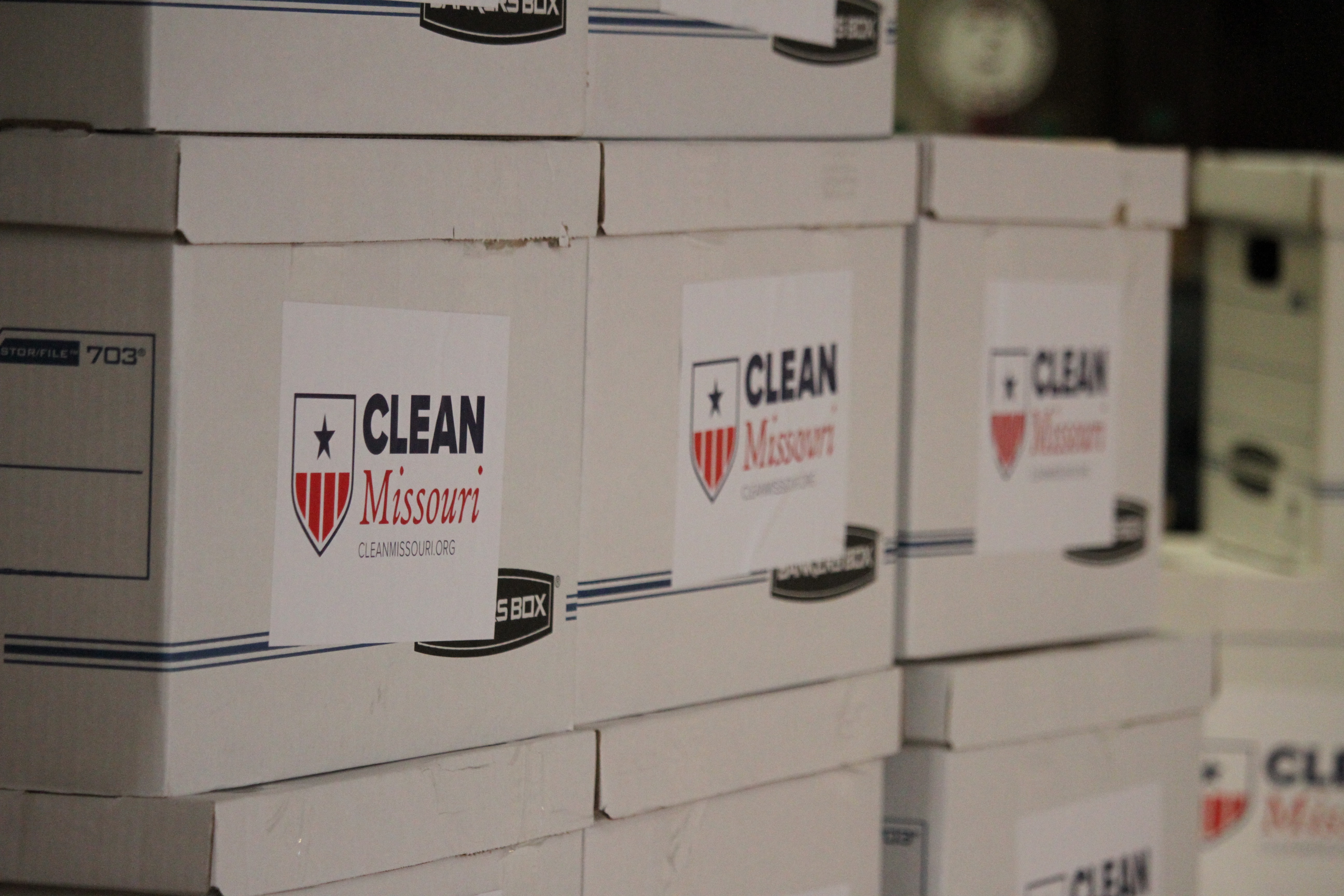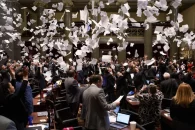A Senate resolution aimed at changing the voter-approved Clean Missouri could get some input from the state auditor before it ends up on the ballot — if it ever does.
SJR 38 does not include a fiscal note with the ballot language as it stands now. That means if the resolution, which is on the House’s calendar, passes the General Assembly, it would be up to Democratic State Auditor Nicole Galloway to write the fiscal note.
It’s happened before: Just last year, SJR 14 modifying term limits was approved by the General Assembly sans a fiscal note. The auditor wrote the fiscal note about three weeks later.
Galloway, who is running against Gov. Mike Parson in the gubernatorial contest this year, would have 30 days to come up with a fiscal note once the resolution is delivered to her office, per state law. The fiscal note will then be filed with the secretary of state.
The Auditor’s Office is prepared to create a fiscal note and fiscal note summary for SJR 38 that states “the measure’s estimated cost of savings, if any, to state or local governmental entities,” a spokeswoman confirmed.
The process for creating the fiscal note includes consultation with state and local government entities and others with “pertinent” knowledge of the resolution at hand. Individuals may also submit statements of fiscal impact to the Auditor’s Office within 10 days of the secretary of state sending the resolution.
It’s already down to the wire for SJR 38. The contentious resolution, which requires voter approval later this year, bans lobbyist gifts to lawmakers altogether and lowers campaign contribution limits for the office of state senator.
But the more controversial provision of the resolution changes how Missouri’s redistricting process works — again. Approved by voters in November 2018, Amendment 1, dubbed “Clean Missouri,” changed the state’s redistricting process to require a new nonpartisan demographer to draw legislative maps for the General Assembly following the 2020 U.S. Census.
SJR 38, however, would place the duties in the hands of independent, bipartisan House and Senate commissions, similar to what was done in the past.
A House committee finally passed the resolution out this week — albeit, without any confidence from the Republican committee chairman — and it sits on the House’s calendar. The legislative session officially comes to a close on Friday, but the upper chamber may adjourn sine die as early as Wednesday.
Opponents of SJR 38 have decried the legislation as “overturning the will of the voters.” The fiscal note on the legislation says it could cost the general revenue fund from $0 up to $7.8 million.
The Senate third read and passed the resolution in a 22-9 vote in February, with Sen. Lincoln Hough the lone Republican who voted against the measure.
The ballot language on Amendment 1 included: “State governmental entities estimate annual operating costs may increase by $189,000. Local governmental entities expect no fiscal impact.”

Kaitlyn Schallhorn was the editor in chief of The Missouri Times from 2020-2022. She joined the newspaper in early 2019 after working as a reporter for Fox News in New York City.
Throughout her career, Kaitlyn has covered political campaigns across the U.S., including the 2016 presidential election, and humanitarian aid efforts in Africa and the Middle East.
She is a native of Missouri who studied journalism at Winthrop University in South Carolina. She is also an alumna of the National Journalism Center in Washington, D.C.
Contact Kaitlyn at kaitlyn@themissouritimes.com.

























